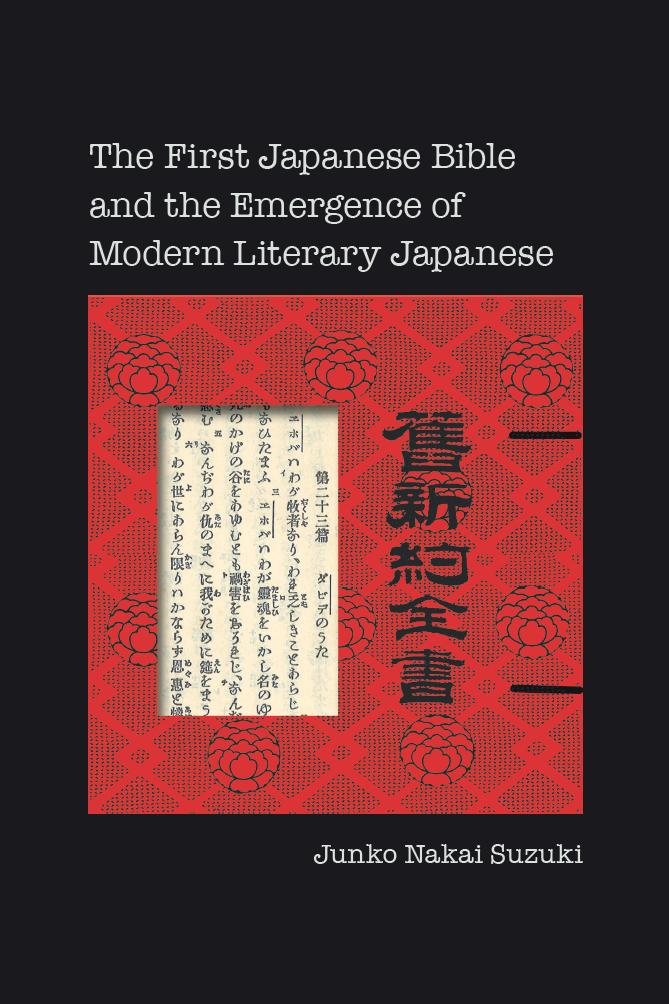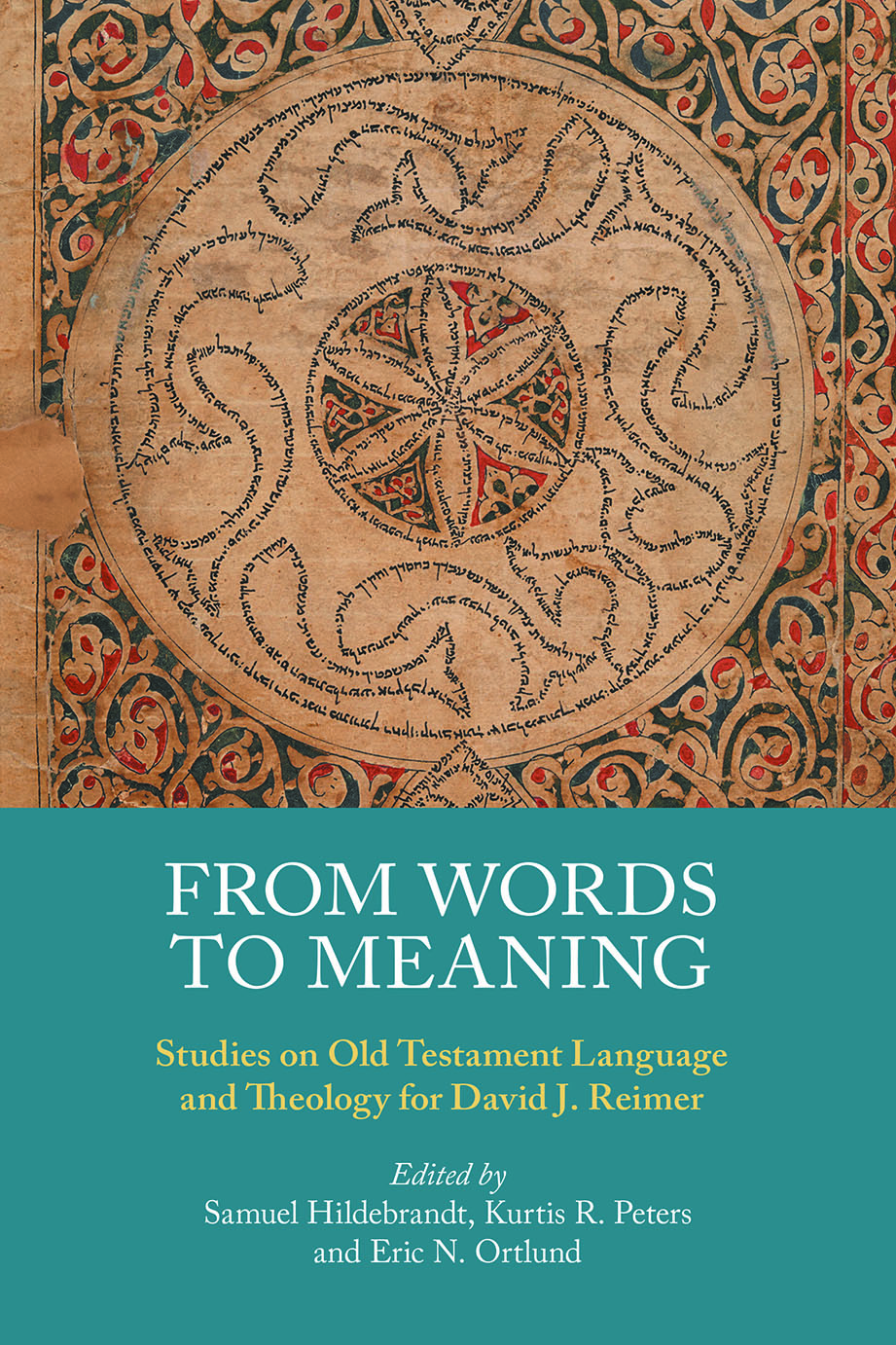The First Japanese Bible, and its Role in the Emergence of Modern Literary Japanese
Published: Sep 2025
£85.00
This ground-breaking book depicts the life, times and works of the Bible translators of nineteenth-century Japan and the prominent role they played in helping to shape modern Japan.
The translation of the Bible into Japanese occurred at a time of great cultural turmoil, when Japan was grappling with industrial and technological modernization in the shift from a feudal agrarian society after 260 years of isolation. In this turmoil, the cultural question of literary style was deemed of great importance. Because of the dichotomy between those who read Chinese (in a Japanese way) and those who did not, the need for reform and simplification was considered an essential aspect of the modernization of Japanese society. The Japanese Bible emerged as a prime example of such a style.
Suzuki’s study traces the development of the primary versions that culminated in the production of the first complete Japanese Bible, the Meiji Version of 1887. The translation of the Psalms, in particular, gained wide acclaim, even being said to be as incomparable as Mt Fuji. The literary quality of the Hebrew Bible was conveyed by the integration of a pure Japanese elegance, Chinese gravitas and freshness of Western and even some Hebrew elements of style.
For the first time, this volume gives due weight to three factors: appreciation of the Chinese Bible by the Japanese Bible translation, its fidelity to the primary Hebrew and Greek source texts, and its adoption of a pure Japanese style as the foundation.
The First Japanese Bible, and its Role in the Emergence of Modern Literary Japanese
£85.00
This ground-breaking book depicts the life, times and works of the Bible translators of nineteenth-century Japan and the prominent role they played in helping to shape modern Japan.
The translation of the Bible into Japanese occurred at a time of great cultural turmoil, when Japan was grappling with industrial and technological modernization in the shift from a feudal agrarian society after 260 years of isolation. In this turmoil, the cultural question of literary style was deemed of great importance. Because of the dichotomy between those who read Chinese (in a Japanese way) and those who did not, the need for reform and simplification was considered an essential aspect of the modernization of Japanese society. The Japanese Bible emerged as a prime example of such a style.
Suzuki’s study traces the development of the primary versions that culminated in the production of the first complete Japanese Bible, the Meiji Version of 1887. The translation of the Psalms, in particular, gained wide acclaim, even being said to be as incomparable as Mt Fuji. The literary quality of the Hebrew Bible was conveyed by the integration of a pure Japanese elegance, Chinese gravitas and freshness of Western and even some Hebrew elements of style.
For the first time, this volume gives due weight to three factors: appreciation of the Chinese Bible by the Japanese Bible translation, its fidelity to the primary Hebrew and Greek source texts, and its adoption of a pure Japanese style as the foundation.
From Words to Meaning: Studies on Old Testament Language and Theology for David J. Reimer
Published: Dec 2021
£60.00
David J. Reimer, to whom this volume is dedicated, has taught over twenty years at New College in Edinburgh. During this time, he has published and supervised many projects in the areas of Hebrew language study and Old Testament theology. These two disciplines often stay each in their own territory. As a token of recognition to David's scholarship, From Words to Meaning is designed to bridge this gap and to demonstrate afresh how speaking theologically about the Old Testament is enriched when it focuses on how these ancient texts communicate their message.
With its analysis of selected literary aspects, words, and theological questions, the volume contributes to current methodological discussions in both disciplines. Each of its twelve essays provides a case study that models the crossover between theology and language study. Alongside up-to-date discussions about Bible translation and biblical theology, the volume sheds new light on old questions, such as resurrection and Christology in the Old Testament. Inasmuch as all of these items are established topics in Old Testament theology, From Words to Meaning highlights time and again how close attention to Hebrew language results in a more nuanced understanding. This holds true especially for the many exercises of lexical semantics and pragmatics that are included in the volume. Readers will benefit from the careful study of the words 'to save' and 'glory', but will also gain fresh insights into the rhetoric of David's tears, Hosea's culinary metaphors, and Jeremiah's speech quotation.
The combination of well-established writers and emerging new voices results in a rounded sample of how we may move 'from words to meaning'. With its expertise and methodological orientation, the volume is an excellent resource for all scholars who are interested in the interplay of theology and language in the field of Old Testament studies.
From Words to Meaning: Studies on Old Testament Language and Theology for David J. Reimer
£60.00
David J. Reimer, to whom this volume is dedicated, has taught over twenty years at New College in Edinburgh. During this time, he has published and supervised many projects in the areas of Hebrew language study and Old Testament theology. These two disciplines often stay each in their own territory. As a token of recognition to David's scholarship, From Words to Meaning is designed to bridge this gap and to demonstrate afresh how speaking theologically about the Old Testament is enriched when it focuses on how these ancient texts communicate their message.
With its analysis of selected literary aspects, words, and theological questions, the volume contributes to current methodological discussions in both disciplines. Each of its twelve essays provides a case study that models the crossover between theology and language study. Alongside up-to-date discussions about Bible translation and biblical theology, the volume sheds new light on old questions, such as resurrection and Christology in the Old Testament. Inasmuch as all of these items are established topics in Old Testament theology, From Words to Meaning highlights time and again how close attention to Hebrew language results in a more nuanced understanding. This holds true especially for the many exercises of lexical semantics and pragmatics that are included in the volume. Readers will benefit from the careful study of the words 'to save' and 'glory', but will also gain fresh insights into the rhetoric of David's tears, Hosea's culinary metaphors, and Jeremiah's speech quotation.
The combination of well-established writers and emerging new voices results in a rounded sample of how we may move 'from words to meaning'. With its expertise and methodological orientation, the volume is an excellent resource for all scholars who are interested in the interplay of theology and language in the field of Old Testament studies.
Sowing the Word: The Cultural Impact of the British and Foreign Bible Society 1804-2004
Published: Jun 2006
Price range: £19.50 through £60.00
In March 2004, a group of 30 historians who have been fascinated by the work of the British and Foreign Bible Society met in London to share their researches, in celebration of the 200th anniversary of the Society (now part of the United Bible Societies).
A common thread to their papers was the indelible effect the Society's work has had around the world, not only in bringing the Bible to people of many countries in their own language, but also in helping to create many national identities and cultures. The Bible was often the first printed book in a language, and so the primer for those learning to read. It had an enormous influence on education, the development of written languages, and the outlook of leaders and ordinary people alike throughout Europe, Asia and Africa.
In the 19 papers of this volume, focussing on Britain, West Africa, East Asia, Russia, Europe and North America, readers will find a wealth of absorbing detail. There are the stories of those who translated the Bible into the languages of China and Russia, into the native languages of nineteenth-century Canada, and into many other languages of the world. There are the intriguing tales of those who distributed Bibles, including the many women such as the Bible Women, who found a freedom they otherwise lacked in organizing networks for circulating the Scriptures.
Not forgotten either are those colourful characters, like the maverick George Borrow in Spain, who took enormous risks for the Society in selling Bibles in countries where a vernacular Bible was not welcomed by the authorities.
Sowing the Word: The Cultural Impact of the British and Foreign Bible Society 1804-2004
Price range: £19.50 through £60.00
In March 2004, a group of 30 historians who have been fascinated by the work of the British and Foreign Bible Society met in London to share their researches, in celebration of the 200th anniversary of the Society (now part of the United Bible Societies).
A common thread to their papers was the indelible effect the Society's work has had around the world, not only in bringing the Bible to people of many countries in their own language, but also in helping to create many national identities and cultures. The Bible was often the first printed book in a language, and so the primer for those learning to read. It had an enormous influence on education, the development of written languages, and the outlook of leaders and ordinary people alike throughout Europe, Asia and Africa.
In the 19 papers of this volume, focussing on Britain, West Africa, East Asia, Russia, Europe and North America, readers will find a wealth of absorbing detail. There are the stories of those who translated the Bible into the languages of China and Russia, into the native languages of nineteenth-century Canada, and into many other languages of the world. There are the intriguing tales of those who distributed Bibles, including the many women such as the Bible Women, who found a freedom they otherwise lacked in organizing networks for circulating the Scriptures.
Not forgotten either are those colourful characters, like the maverick George Borrow in Spain, who took enormous risks for the Society in selling Bibles in countries where a vernacular Bible was not welcomed by the authorities.



